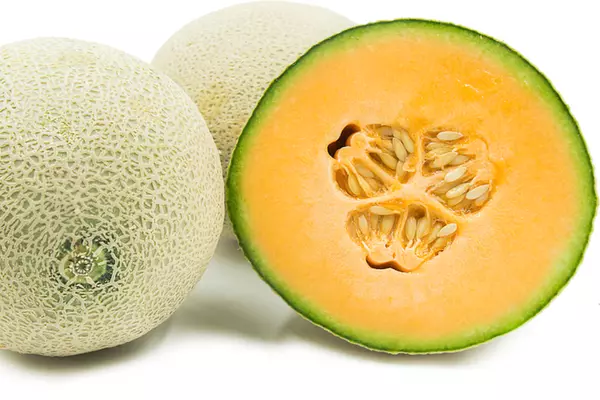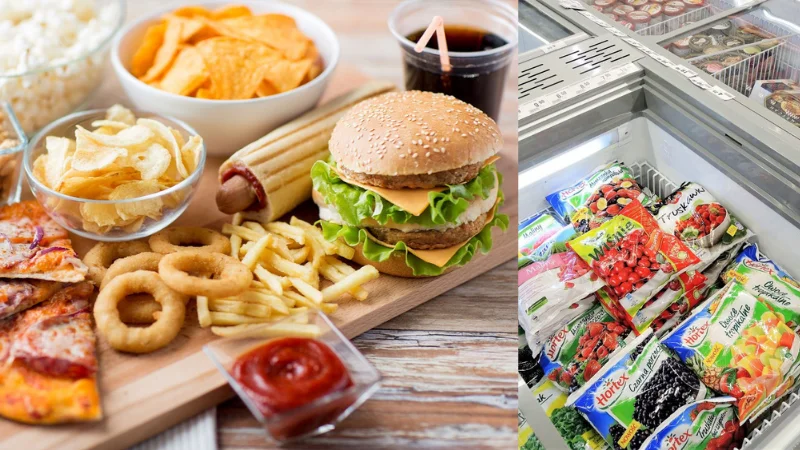Determining the ripeness of a cantaloupe can be difficult because it is not always one clear indicator.
Sometimes, it can take shopping for several cantaloupes and observing their quality before determining whether the fruit is ripe.
Two common indicators for determining if a cantaloupe is ripe are color and sound. Cantaloupes that are ripe will have a yellowish tinge to them, even if they’ve been refrigerated; they should also yield slightly when pushed in with your thumb.
A ripe cantaloupe also makes more of a squeaking sound than a knocking sound when you gently shake it. Be aware that some factors can make it difficult to determine the ripeness of a cantaloupe.
How To Tell If A Cantaloupe Is Ripe?
The most common signs of ripened cantaloupe are those which indicate that it is ready to eat—such as a yellow tinge, slight movement when the fruit has been shaken, and a more audible “chime” when the cantaloupe is gently tapped on the counter top.
However, there are also some other factors you might want to consider before purchasing your cantaloupes, including:
1. Color
Cantaloupes that are still green but have begun to yellow will not be ripe. If you are buying at a store and you have not had the chance to pick your own, this can be a trickier indicator.
You must either choose the fruit yourself or ensure that the produce manager picks them for you with ripeness in mind.
2. Size
Cantaloupes that are smaller than the recommended size of the fruit are likely to be unripe, while cantaloupes that are bigger than the recommended size may still be unripe but are more likely to be ripe enough to eat.
Also, cantaloupes that do not ripen at all may need additional time in a cooler location before being good for consumption after refrigeration and/or shipping.
3. Texture
Cantaloupes that are very firm and have a slight greenish tinge will not be ripe. Cantaloupes that are limp or have a slight yellow tinge will likely be ripe but will not necessarily be ready to eat.
However, this is not a fool-proof indicator, as cantaloupe can also become soft and mealy after many weeks of storage. Cantaloupe that is very soft and under-ripe may still be safe to eat if it has been properly refrigerated.

4. Smell
When the cantaloupe is ripe, there won’t be much of a scent at all. If the fruit has a strong, sweet smell, it has likely been picked too early. Ripe cantaloupes may also have a slightly musky smell, but it should not overpower the senses.
5. Sound
The sound of a ripe cantaloupe is more of a buzzing sound, not a hard-clicking sound. Ripe cantaloupes do not make the same “knock” when they are tapped on the counter.
6. Feel
A ripe cantaloupe should have a slightly soft feel; if it feels hard and heavy, it is likely to be unripe. The cantaloupe is likely ripe if the skin is smooth and glossy.
Do Cantaloupes Ripen On The Counter?
Ripe cantaloupes will keep for up to a week on the kitchen counter. They do not need to be refrigerated or kept in a cool location in order to ripen.
How Do You Ripen A Cantaloupe From The Store?
If you have a cantaloupe that is already ripe but is not quite ready to eat, you can place it in a paper bag with an apple or banana for 2–3 days. The fruit’s ethylene gas will help encourage the ripening process.
How Long Does It Take A Cantaloupe To Ripen?
If the cantaloupe is stored properly, ripe fruit will begin to ripen after it has been in the refrigerator for at least a day.
Some varieties of cantaloupe (like Mirabilis) will continue to ripen for up to 3 weeks if you leave them on the counter or in the refrigerator.
Can You Eat An Unripe Cantaloupe?
The short answer is: It depends. There are different types of cantaloupes, and each variety will be slightly different from another.
However, unripened cantaloupes are generally safe to eat as long as they have not been damaged by frost or other forms of physical damage.
Conclusion
As you can see, determining the ripeness of a cantaloupe can pose a challenge. But if you follow the guidelines listed above, you should be able to determine which cantaloupe is ripe enough to eat.
Regardless of which variety of cantaloupe you have, always practice safe food storage habits when handling any fruit. In this way, you can be sure that your food will always be in a safe state to eat!
- Jet’s Ranch Recipe: Make The Famous Dip At Home - April 12, 2025
- James Hemings Macaroni And Cheese Recipe – History On A Plate - April 3, 2025
- French Dip Squares Recipe – Better Than A Sandwich! - March 25, 2025


